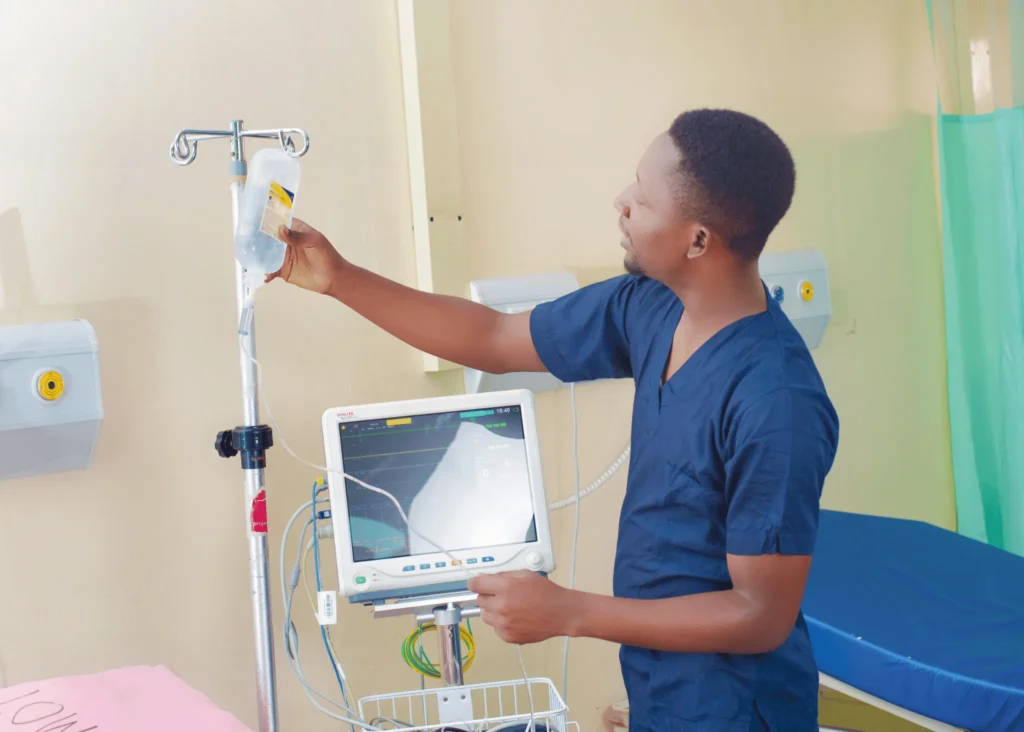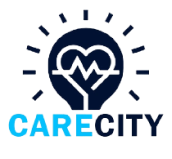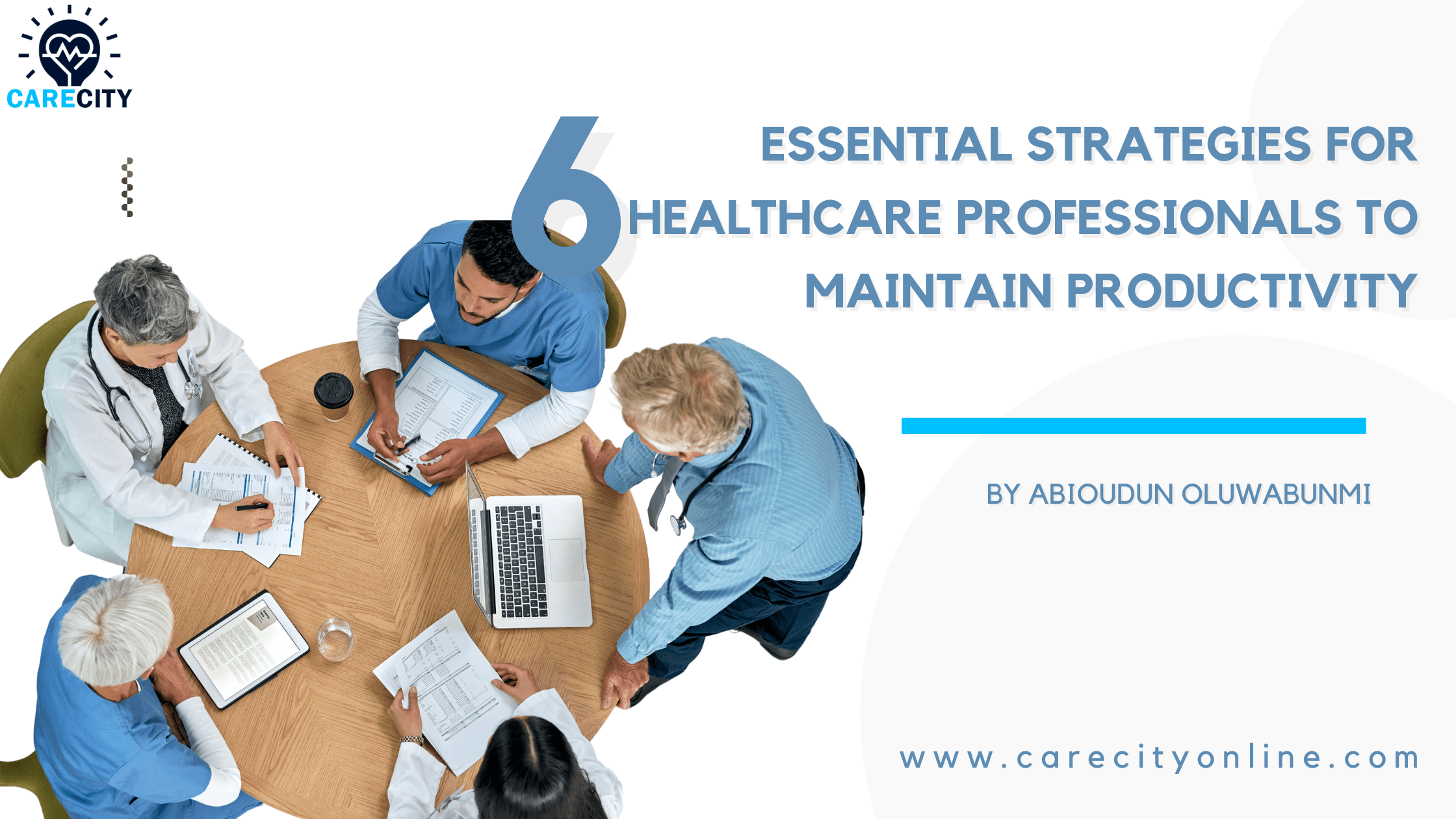
Productivity is generally seen as the efficiency of output expressed by some measure.
This measure is often unique and varies according to situations or individuals.
High productivity can be described as meeting a more significant chunk of the set target according to the measure of the specified output.
In contrast, low productivity is the opposite, i.e., not meeting or performing less than the set output.
Productivity is a critical variable in business and individual lives of people.
In this context, we are referring to the healthcare organisations.
Private hospitals, care homes, pharmacies, diagnostic centres, hospices, etc., were set up to make profits and generate revenue. Even government-owned establishments are required to generate revenue to keep the facility running.
Also, as employees in these settings, you want to stay at the top of your game and schedule.
You want to have strong control and be efficient at work and in your personal life.
We agree with you on how fast-paced, understaffed, and poorly equipped most healthcare settings are in developing countries, and these conditions often are the cause of high staff turnover, increasingly putting pressure on the remaining staff and causing burnout which can decrease individual productivity over time and subsequently affect the business and organisation.
Unpleasant situations are unfortunately common and likely to increase in developing countries due to slow technology adoption, financial limitations, and ineffective change implementation.
As a nurse, doctor, lab scientist, pharmacist, radiographer, physiotherapist, dietitian, care worker, or perhaps you work directly with patients in any other capacity, here are the few tips we have for you to make you stay productive both at work and in your individual life.
Start with the most important task with the closest deadline
Does this sound confusing? It is simple. Look at it this way, the most important task may not be the one with the closest deadline sometimes, but does it really matter? Yes, it does. Deadlines are important guides and analytics in health. You don’t have the same deadline to repeat a 12-hour medication and perform a wound dressing. Of course, both are important, but delaying the medication for an hour or more can affect its bioavailability and effect. It can be a bad record for you to administer your patient’s medication late, but such aftermaths do not come with delaying the same patient’s wound dressing for 30 minutes. The injury won’t get gangrene within that time, nor wound the infection spread to vital organs in that time. Hence, it would be best to prioritise meeting important deadlines that can critically impact others’ judgment of your efficiency and your patient’s health. The best employees know this, and they do it.
Have a to-do list
Here, we are saying, plan your work. Proper planning helps you eliminate distractions and keep you more focused. It saves you time and reserves your energy for other important things. Remember, you have to do this in order of priority also. Not only does this make you organised, but it also makes you alert to tasks you may have forgotten.
Avoid motivation initially; lean on encouragement instead
Our words may always seem out of the ordinary in Care City, but that is because we won’t bring you junk. We bring you clearly researched facts and truths. Motivation can spike dopamine levels in you, which is great, of course, but when the dopamine levels become low, would you still be found at the top of your game as you had been? Most likely, No. Your reason for wanting to stay productive must be your driving force. This ignites you when your dopamine level is low. By the way, encouragement in the form of rewards and motivation can kick in after you have discovered this.
Focus on one task at a time
You really do not want to be found guilty of negligence or malpractice in your practice. With lawsuits on the rise in recent years for healthcare workers, paying maximum attention when at work will help you avoid preventable errors and make you perform better. Following the ethics of your practice is also important to assist you in delivering the best results at your workplace. Focus on one task at a time and ensure you are not distracted or multi-tasking. This is important for those working in critical care departments where utmost attention to detail is essential.
Delegate where necessary
Dr Benjamin Carson, in his book the gifted hands, mentioned how he had to start passing roles to others to give him some free time, so others could also learn and improve. With delegation, you have more time to focus on the most important things and train others in the process. Remember, in health, the principle of absolute responsibility applies, i.e., Authority can be delegated, but accountability and responsibility cannot. Therefore, delegate only where necessary and in the patient’s best interest.
Take regular breaks and rest
This is a vital time for you to revitalise, refresh and repurpose yourself if you are lagging. A sound mind is essential for good output; hence you should not miss your breaks if you want to stay productive.
The most productive ones are indispensable in any organisation or workplace.
Being very productive opens you to a world of opportunities and can set you on the right trajectory.
As a healthcare professional, you can always become the best in what you do by staying productive.
Apply these simple principles and watch as your productivity levels improve.
We have two major newsletters on Substack for all our wonderful readers on Care City.
“Care City Weekly” serves as a curation of some of the most exciting content from healthcare leadership, innovation, entrepreneurship, personal and professional development and more. We do a weekly roundup of top articles from our website and also feature essays, articles, reports and blog posts from credible websites and online media sources.
Subscribe to “Care City Weekly”
And “The Digital Health Report” which is our newsletter dedicated to digital health. Here we share ideas, explore other opinions, and share reports, essays and analyses about the exciting and dynamic world of digital health. If you want to know more about the digital health industry, then you should be there with us. And it’s totally free!
Subscribe to “The Digital Health Report”






Drop Your Comment